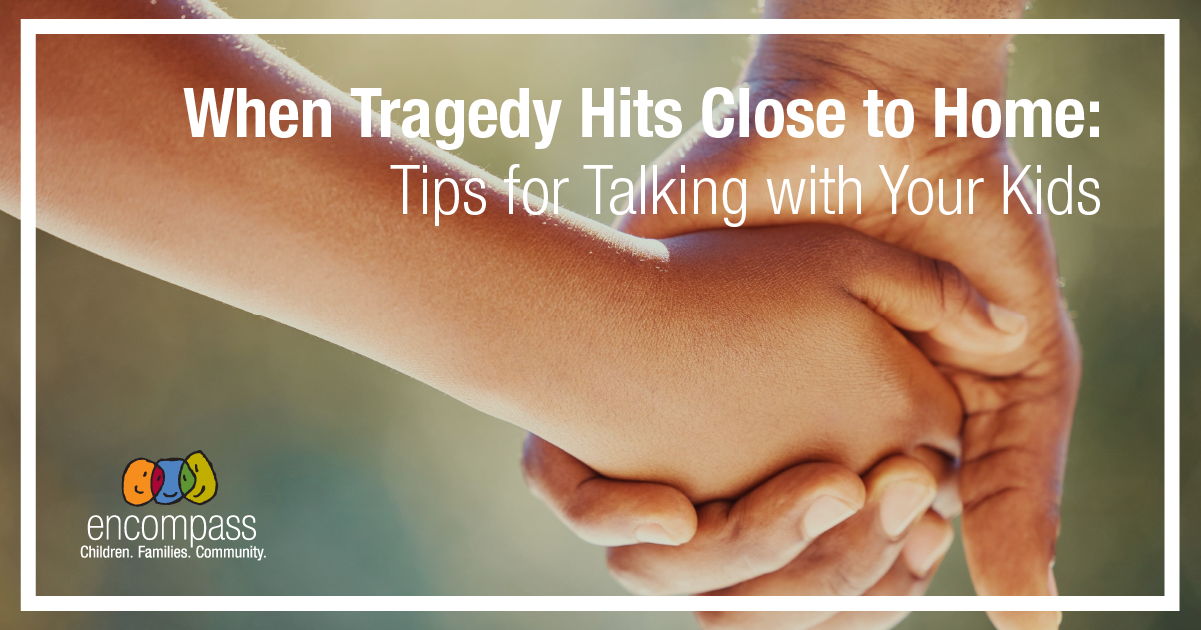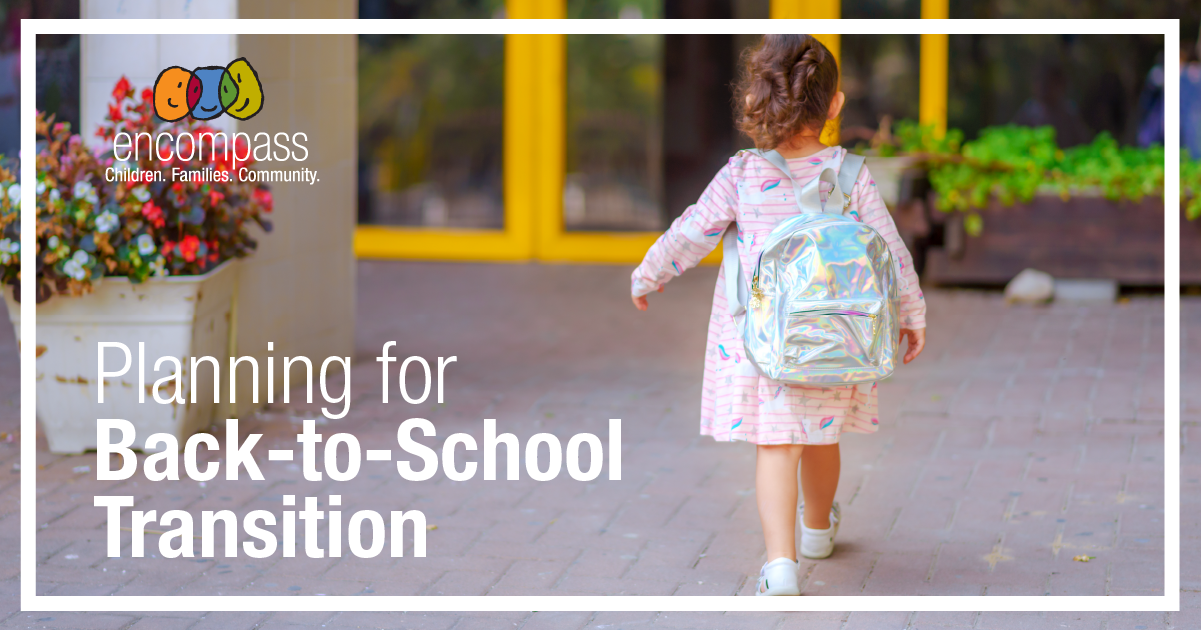Understanding Multidisciplinary Collaboration
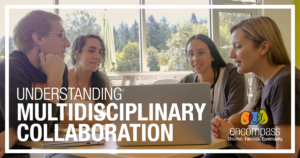 Multidisciplinary Collaboration – What Does it Mean?
Multidisciplinary Collaboration – What Does it Mean?
Encompass Pediatric Therapy Director Rachel Peterson and Encompass Behavioral Health Director Megan Walsh break it down for us and share how this dynamic approach takes the ‘whole child’ into consideration and leads to better outcomes for children and families.
As directors of therapy programs focused on children and families, we are always looking for ways to develop opportunities for our therapy teams and the kids we serve. The collaboration between the Occupational Therapy, Speech Therapy, and Behavioral Health therapy teams at Encompass is working to bring people out of the silos of the work they do to share knowledge, experience, and ideas with other professionals. It is important to both of us that we maximize the services offered to our clients while also increasing the opportunities for growth and connection for therapists. As part of our desire to meet both important goals, we’ve designed a comprehensive plan that offers time to build collaborative and connected relationships and share wisdom across programs.
Lunch n’ Learn Sessions
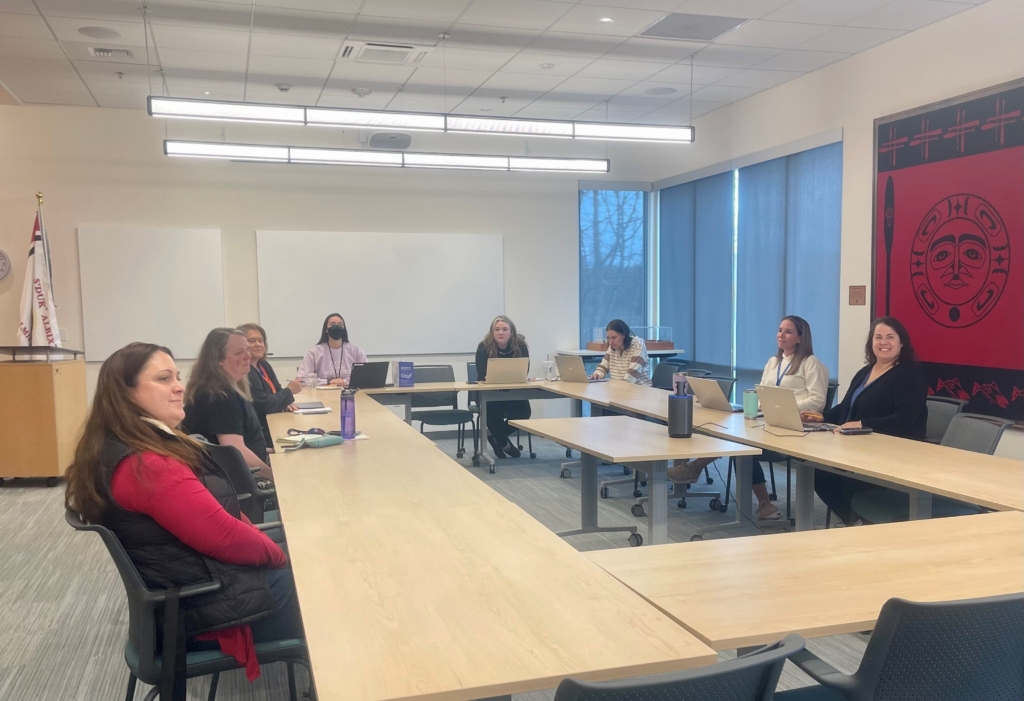 Once each week, therapists gather for an hour to watch a video, discuss thoughts and comments, and break bread together during our “Lunch n Learn” meeting. During a recent meeting, a speech therapist was exploring the treatment being provided to a child who sometimes stutters and a behavioral health therapist was able to provide some insight into why anxiety may be impacting the child’s situation. This prompted the treating therapist to build in new tools and strategies for meeting the child’s needs.
Once each week, therapists gather for an hour to watch a video, discuss thoughts and comments, and break bread together during our “Lunch n Learn” meeting. During a recent meeting, a speech therapist was exploring the treatment being provided to a child who sometimes stutters and a behavioral health therapist was able to provide some insight into why anxiety may be impacting the child’s situation. This prompted the treating therapist to build in new tools and strategies for meeting the child’s needs.
Family Care Coordination
Once a month, the Lunch and Learn serves as a Family Care Coordination meeting where therapists or case coordinators present a situation and can then hear ideas, resources, and strategies for building a plan that will best serve the family from speech, occupational therapy, and behavioral health. For example, an Autistic child may struggle with sensory processing and social communication skills. By working with an occupational therapist to address sensory needs and a speech therapist to address communication, a behavioral health therapist can then provide support to help the child navigate the social and emotional challenges of everyday life. These programs work on similar issues but approach things from wildly different perspectives and it is an incredible benefit to everyone when we can discuss our supports in this way.
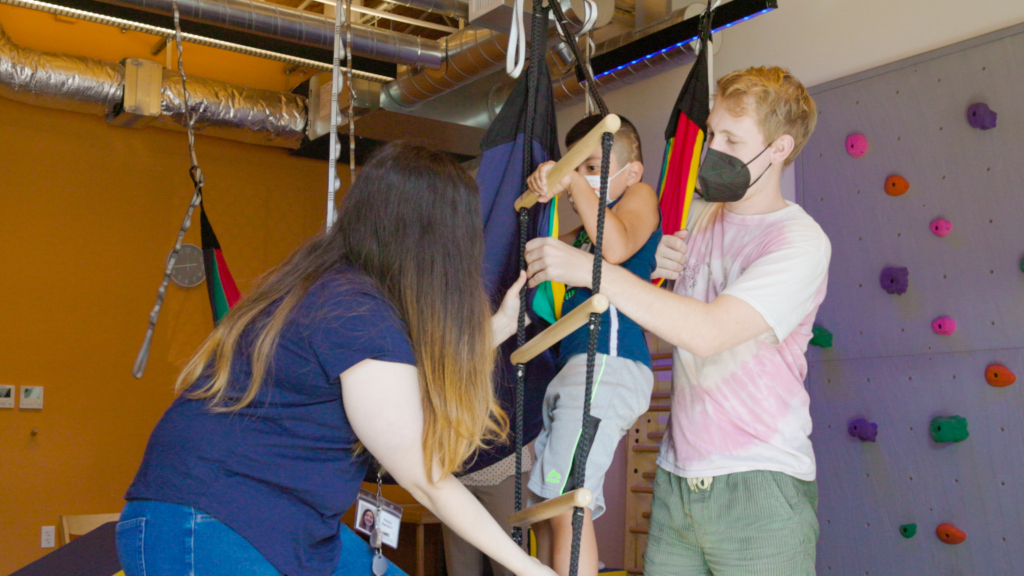 Co-Treatment
Co-Treatment
We’ve also provided an opportunity for therapists to do what we call “co-treats” where two therapists meet with a client or family together to allow the child to benefit from two types of therapy within a one-hour time span. This has been a win-win for families and therapists as busy schedules can make it challenging 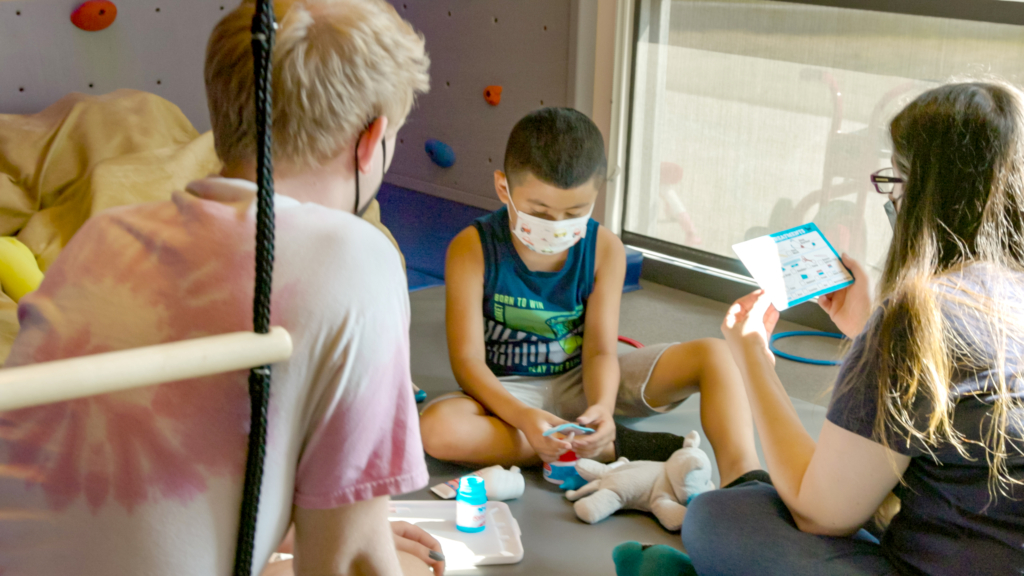 for families to attend multiple hours of therapy each week. In turn, therapists are given the gift of witnessing the way other professionals address an issue and it’s another opportunity to challenge our existing way of interacting with children therapeutically.
for families to attend multiple hours of therapy each week. In turn, therapists are given the gift of witnessing the way other professionals address an issue and it’s another opportunity to challenge our existing way of interacting with children therapeutically.
Community Navigation Team
To serve as an extension to the resources that Encompass provides to families, our Family Care Coordination Team is active in The Supportive Community for All’s Navigation Team. The Navigation team meets monthly and is comprised of dozens of local organizations linked by a referral platform to ensure families are efficiently connected with pertinent resources. There is a vast range of participating organizations allowing the collaboration to be robust and tailored to the unique needs of the family – from food banks to shelters, or energy assistance to senior centers – the Navigation Team works diligently to connect families to resources.
The Encompass Model
In the last year, we’ve also started doing more all-team trainings and building a cohesive group understanding of “The Encompass Model”.
- Brain-based
- Connection focused
- Diversity affirming
- Increases reflective capacity
- Welcomes authentic vulnerability.
We celebrate growth and work together to build a web of support for clients and staff that is responsive to their and our changing and emerging needs. While this type of collaborative model takes time and provides ample opportunities for working through communication challenges and misunderstandings, the response has been overwhelmingly positive from therapists who report that they feel more connected to their coworkers, they are recognizing and embracing the need to be lifelong learners and they feel more hopeful about the difficult work they do every day. During a recent learning opportunity, several seasoned team members reported that they had never learned about a particular topic (interoception) in their schooling, but we were all thrilled to learn that our recent graduates had covered this topic in their classes. This was an amazing opportunity to highlight the benefits of experienced clinicians being open to learning from people who are new to the field. We all have so much to share when we are able to learn and grow together!
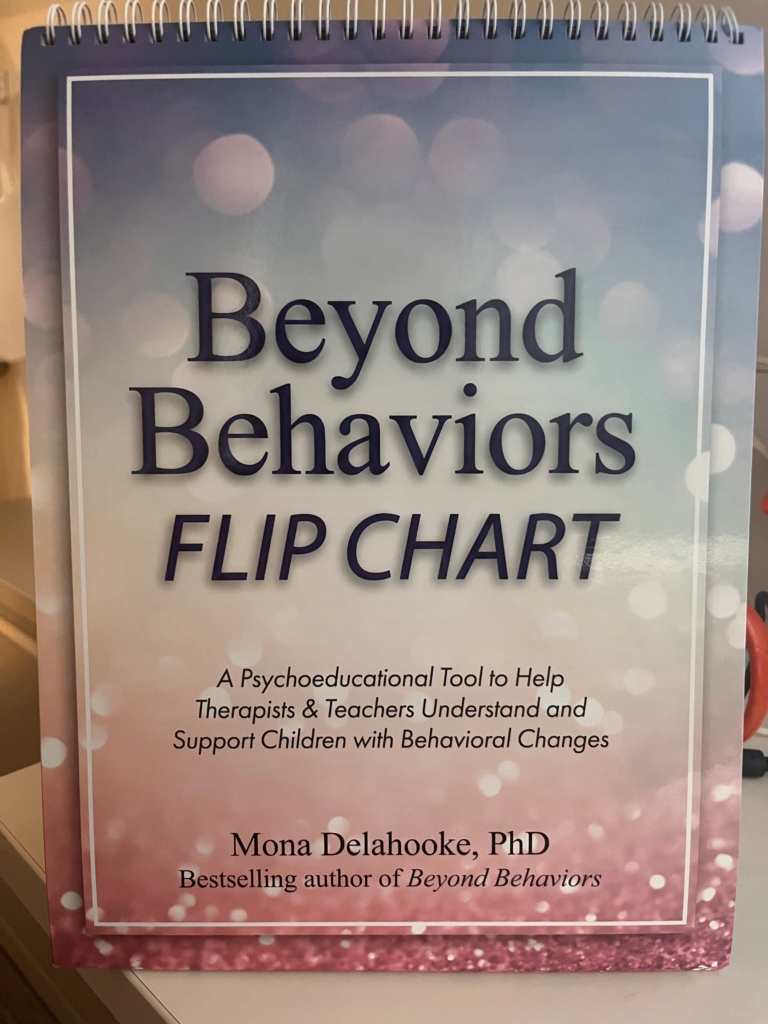 Community Collaboration
Community Collaboration
Recently, we had the opportunity to expand this collaborative approach to include our community partners, Snoqualmie Valley School District, Snoqualmie Police, and Empower Youth Network in a wonderful two-part series of workshops offered by Mona Delahooke, Ph. D on exploring the needs being communicated by behaviors and how to partner with kids and families to increase their sense of belonging and safety in our community. You can read more about those trainings in our blog (link), but the overwhelming focus is a shift change in how we look at behaviors and that they should be considered signals for need rather than targets for intervention. While many of us may not have learned these concepts in our years of schooling, these collaborative efforts have given us the gift of continued growth and change in the ways we interact with children and each other. To further this important work, we’ve arranged a monthly “Beyond Behaviors” workgroup where we can problem-solve, and support the continued use of these powerful ideas.
The leadership team at Encompass is deeply committed to expanding this holistic, multi-disciplinary approach across all programs at Encompass. By working together, we can ensure that all aspects of a child’s life are taken into consideration, including their physical health, emotional well-being, educational needs, and social environment. In addition to enhanced outcomes for children and families, the multi-disciplinary approach provides professionals with opportunities to refine collaboration skills, increase individual knowledge and expertise, lead to career opportunities, and increase job satisfaction. Whether partnerships and collaboration are internal or external, the benefits to everyone involved are immense and only serve to provide a web of safety, security, and quality services to Snoqualmie Valley.

